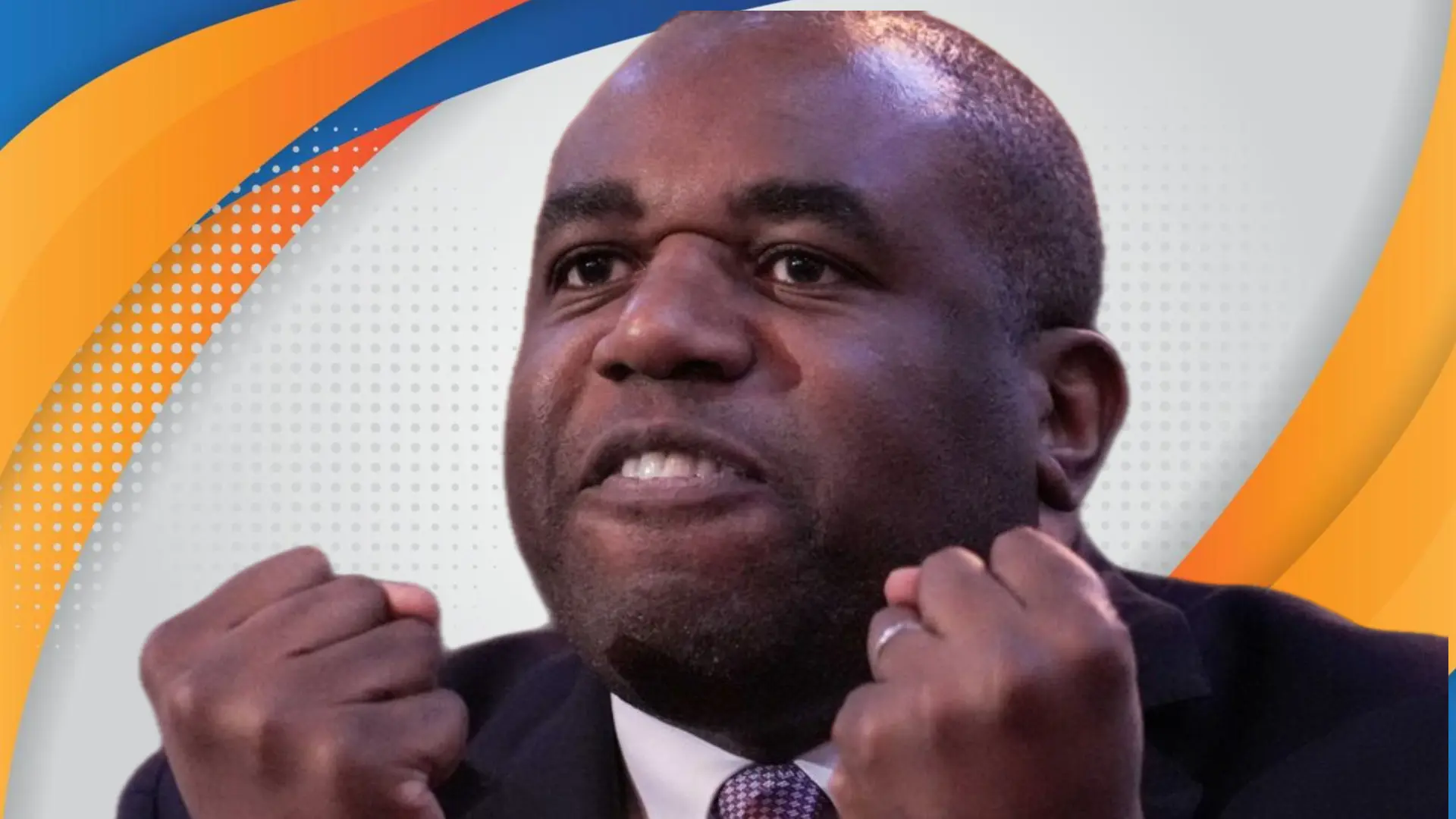The tragic tale of Poor David Lammy —a name now more synonymous with misfortune than a dropped ice cream cone on a hot summer day.
Here he was, boldly strutting onto the global stage like a superhero of diplomacy, slamming the US government for slashing international aid like it’s last season’s budget shoes. But alas! The universe has a cruel sense of humor and decided to boomerang his words right back at him faster than you can say “oops.”
Now, whenever someone mentions his name, it comes with that pitying prefix—”poor David”—as if he’s the protagonist of some Shakespearean comedy where everyone knows the punchline except him.
Truly, the only thing more painful than being haunted by your own words is realizing they’ve become the plot twist in this political sitcom we’re all watching from the sidelines. Popcorn, anyone?
Now resembling a game of political whack-a-mole where he’s both the player and the mole.
A fortnight ago, our intrepid Foreign Secretary was out here comparing the US government’s budget cuts to the UK’s own past blunders, essentially implying that chopping foreign aid is about as wise as bringing a rubber duck to a shark fight.
“Big strategic mistake,” he declared, wagging his finger at America like an overzealous schoolteacher.
But wait! Let’s rewind four years to when Lammy was already donning his cape, crusading against cutting foreign aid before Russia decided Ukraine needed an uninvited guest.
Fast forward to earlier this month, and guess what? He’s still at it, bashing Boris Johnson’s old crew for slicing the aid budget down to 0.5% of GDP. The irony? His current boss, Keir Starmer, just pulled the same move to fund a shiny new defense spending boost.
So now we find ourselves in the ultimate plot twist: Lammy criticizing yesterday’s decisions while unwittingly setting himself up for today’s headlines.
It’s like watching someone walk into their own surprise party—and realizing they forgot to bring a gift. Poor David indeed. Perhaps next time, he should invest in a crystal ball or at least a calendar with bold reminders.
The FCO of today versus the FCO of 1982—a tale of two eras separated by more than just a few decades and some questionable fashion choices.
Back in the day, Lord Carrington didn’t mess around: “Oops, my department missed an invasion? Time to hand in my resignation letter like a gentleman.” Principles were principles, honor was honor, and resignations flowed as freely as tea at a Buckingham Palace garden party.
Cut to today, where Poor David Lammy is busy juggling his robust views on foreign aid like they’re flaming torches in a circus act. He’s spent so much time virtue-signaling his superior moral compass that you’d think he’d have one installed in every room of the Foreign Office.
Surely, logic dictates that if his government doesn’t align with his values, it’s time for him to dramatically fling off his tie and storm out à la Lord Carrington?
But wait! In a twist straight out of a low-budget sitcom, it turns out the government has undergone a sudden personality transplant—or maybe just read Lammy’s latest press release.
Suddenly, miraculously, and faster than you can say “policy U-turn,” they’re singing from the same hymn sheet as Lammy… well, at least this week’s version of his values.
So instead of a dramatic exit worthy of Shakespeare (or even Netflix), Lammy stays put, clinging to his post like a kid refusing to give up their favorite blanket.
After all, why leave when your principles are suddenly trending again? Call it political pragmatism—or call it luck—but either way, Poor David gets to keep both his job and his dignity… until next week’s plot twist, anyway.
The ultimate chameleon of the modern age! It’s almost poetic how quickly those lofty promises made in the hazy glow of opposition start to look like doodles on a napkin once you’re handed the keys to the ministerial car. “Silly promises,” you say?
More like optimistic fairy tales told by shadow ministers who probably thought they’d never actually have to deliver on them. And now here we are, watching sensible ministers perform Olympic-level gymnastics to justify why yesterday’s sacred cow is today’s burger special.
But foreign aid? Oh, foreign aid! That’s the piñata everyone loves to take a swing at when times get tough. Sure, it sounds great in theory—helping others, spreading goodwill, making the world a better place—but when budgets tighten, suddenly it becomes the financial equivalent of that dusty treadmill in your garage: noble in principle, expendable in practice.
And yet, for Lammy, this isn’t just about numbers or policies—it’s his thing. His bread and butter. His signature dish at the political buffet.
To see him pivot faster than a spinning top just to stay aligned with his party is both impressive and slightly tragic, like watching a Shakespearean actor forced to perform stand-up comedy.
Is it admirable? Perhaps. Hypocritical? Possibly. Endlessly entertaining? Absolutely. Welcome to the circus, folks—popcorn still optional.
Activist-in-Chief David Lammy, the man who seemingly took the job of Foreign Secretary as an opportunity to host a global book club on historical injustices. From championing the Windrush generation to channeling the voices of those impacted by the transatlantic slave trade, Lammy has positioned himself as the moral compass of British foreign policy—a walking TED Talk with a passport.
For him, international aid isn’t just about diplomacy or “soft power”; no, it’s more like reparations for sins committed before most of us were even born. It’s less “foreign policy” and more “time-traveling apology tour.”












Leave a Reply